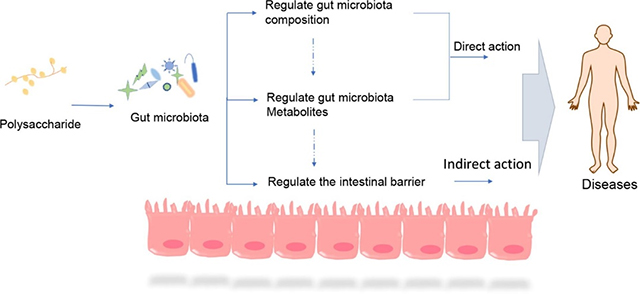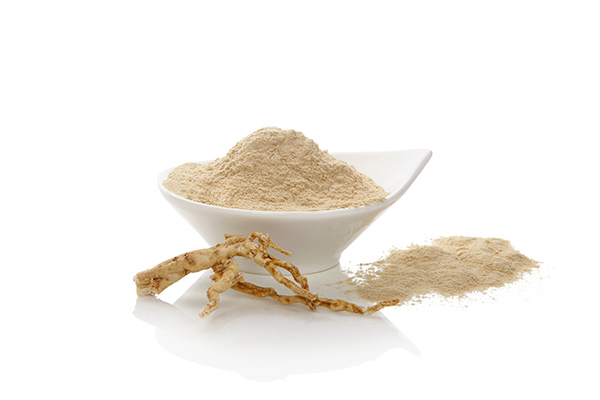-
Home > News & Events > Blog > Human Health
Gut Microecology: A Barometer of Human Health
In all of our organs, where does the gut rank?
We have always considered the heart, brain, liver, lungs, and kidneys as our core organs, often overlooking the intestines, but the gut microbiota is a barometer of human health. The intestine ranks as the largest digestive and immune organ in the human body, and it can be said that gut health is the cornerstone of human health. The amount of intestinal microorganism accounts for 78% of the total human body, with about 400-500 types of flora. These bacteria can be broadly categorized as beneficial, neutral, and pathogenic bacteria. A healthy gut microbiota must strike a balance among these three categories of bacteria.
The "Father of Medicine," Hippocrates, once said, "All disease begins in the gut." One of the most significant characteristics of intestinal flora is its stability. Any imbalance can lead to various internal and external intestinal diseases. Research reports indicate that imbalances in gut microbiota can lead to conditions like atherosclerosis, metabolic disorders, neurodegenerative diseases, obesity, and other issues affecting human health[1]. Therefore, maintaining the balance of gut microbiota is critical in safeguarding human health.
Yeast Polysaccharides: Natural Nutritional Components Derived from Yeast Cells
Yeast polysaccharides are large molecular sugar polymers extracted from yeast cell walls, with its main components being β-glucans (60%) and mannose proteins (40%). Yeast polysaccharides are characterized by being residue-free and having no toxic side effects, making them natural functional biopolymers. Studies have shown that polysaccharides play a role in regulating gut microbiota structure, promoting intestinal metabolism, and repairing the intestinal barrier[2].

Fig.1 Mechanism of Polysaccharides in Regulating Gut Health
Yeast β-glucans are pure natural glucan components found in the inner layer of yeast cell walls, approved by the US Food and Drug Administration (FDA) for use as stabilizers, thickeners, and food ingredients in the pharmaceutical and food industries. β-glucans are relatively common in nature, but due to differences in their sources, they exhibit vastly different physiological activities. The unique β-1,3/1,6 molecular structure of yeast β-glucans (as shown in the figure) is crucial in exerting their physiological effects. Mannose proteins are highly glycosylated proteins containing 80%-90% polysaccharides (mannose, glucose, glucosamine) and 5%-20% protein. In recent years, the role of mannose proteins in promoting gut health has received increasing attention.

Fig.2 Molecular Structures of Different Types of β-Glucans
Several studies have now shown that yeast polysaccharides can maintain the balance of gut microbiota, resist obesity, prevent metabolic syndrome, neurodegenerative diseases, and more.
Yeast Polysaccharides and Gut Microbiota: Advances in Scientific Efficacy Research
Balancing gut health to combat metabolic obesity: In 2021, a team from Nanjing Agricultural University found that yeast β-glucans could improve metabolic syndrome in mice by regulating gut microbiota, including enhancing weight loss, reducing fat accumulation, and preventing liver steatosis[3]. This suggests that yeast β-glucans can serve as prebiotics for preventing metabolic syndrome and regulating gut microbiota. In 2022, a study from the School of Public Health at Huazhong University of Science and Technology found that yeast β-glucans could prevent weight gain, abnormal lipid levels, and systemic inflammation in rats. Moreover, long-term supplementation with yeast β-glucans could restore diet-induced dysbiosis in the gut[4], along with levels of short-chain fatty acids and lipopolysaccharides, providing a new nutritional strategy for reducing obesity. In 2022, mannose proteins derived from yeast were reported to prevent obesity by altering gut microbiota composition[5].
Regulating gut microbiota to prevent age-related dementia: Research shows that gut microbiota can affect the gut-brain axis and, consequently, cognitive abilities[6]. In 2020, a team from the School of Public Health at Huazhong University of Science and Technology found that long-term supplementation with yeast β-glucans in mice led to significant changes in gut microbiota composition, reversing Aβ-induced neuronal loss and excessive tau protein phosphorylation. Moreover, yeast β-glucans could improve neuroinflammation and brain insulin resistance, which are closely linked to the development of Alzheimer's disease (AD)[7]. Ongoing human trials also indicate that yeast β-glucans can effectively improve mild cognitive impairment.
Yeast Polysaccharides: The First Line of Defense for Protecting Gut Health
In recent years, as public awareness of health has increased, the diverse nutritional needs have become more pronounced, with gut health being a key focus of society. Yeast polysaccharides, as natural nutritional components derived from yeast, not only possess abundant nutritional value for gut health but also have distinct safety advantages. Angel Yeast, through innovative techniques, has successfully developed a series of yeast polysaccharide products: FH60, FH301, G70, G90, and SG90, providing the food industry with higher-quality solutions for gut health.
As an emerging prebiotic, yeast polysaccharides can maintain the balance of gut microbiota. In the field of health shaping, yeast polysaccharides can regulate gut microbiota, improve weight loss, reduce fat accumulation, and prevent liver fat deposition. In the field of cognitive disorders, yeast polysaccharides can prevent AD by regulating imbalanced gut microbiota, reducing neuroinflammation, and insulin resistance.
Angel Yeast is focusing on scientific research to deeply explore the interaction between gut microbiota and human health, developing targeted yeast polysaccharide solutions, and providing evidence-based research support. In the future, Angel Yeast will continue to promote the close connection between science and gut health, offering consumers rigorously validated solutions for gut health issues and safeguarding consumer gut health.
References
1. Lynch, S. V. & Pedersen, O. The human intestinal microbiome in health and disease.N. Engl. J. Med.375, 2369–2379 (2016).
2. Dandan Zhang, Juan Liu. Interactions between polysaccharides and gut microbiota: A metabolomic and microbial review. Food Research International.160, 111653 (2022).
3. Guijie Chen, Dan Chen. Improvement of Metabolic Syndrome in High-Fat Diet-Induced Mice by Yeast β-Glucan Is Linked to Inhibited Proliferation of Lactobacillus and Lactococcus in Gut Microbiota. J. Agric. Food Chem. 2021, 69, 27, 7581–7592.
4. Xiaoxing Mo, Yunhong Sun. Insoluble yeast β-glucan attenuates high-fat diet-induced obesity by regulating gut microbiota and its metabolites. Carbohydrate Polymers,281,119046 (2022)
5. Li X, Wu J. Yeast mannoproteins are expected to bea novel potential functional food for attenuation of obesity and modulation of gut microbiota. Front. Nutr. 9:1019344 (2022)
6. J.F. Cryan, T.G. Dinan, Mind-altering microorganisms: the impact of the gut microbiota on brain and behaviour Nat. Rev. Neurosci. 13 701–712. (2012)
7. Mengdai Xu, Xiaoxing Mo. Yeast β-glucan alleviates cognitive deficit by regulating gut microbiota and metabolites in Aβ1–42-induced AD-like mice. International Journal of Biological Macromolecules,161,258-270(2020).
| Published by Yan Jun Engineer of Nutrition and Health Division |
About Angel Human Health:
Specialized in yeast and fermentation, AHH is committed to developing innovative, differentiated, science-based functional ingredients and customized solutions, to help our customers get enduring success, as well as contribute to a healthier and sustainable world together.
About Angel:
Angel Yeast Company is a high-tech listed company specializing in yeast and biotech. Product business covers Yeast and Baking, Yeast Extract-Savoury, Nutrition & Health and Biotechnology fields. It is one of the world's leading companies in the yeast industry. Angel has 12 holding subsidiaries and provides products and services for more than 150 countries and regions.
Press Contact:
ANGEL YEAST CO., LTD
Address: 168 Chengdong Avenue, Yichang, Hubei 443003, P. R.China
Tel: +86 717 6369570
Email: Nutritech@angelyeast.com








